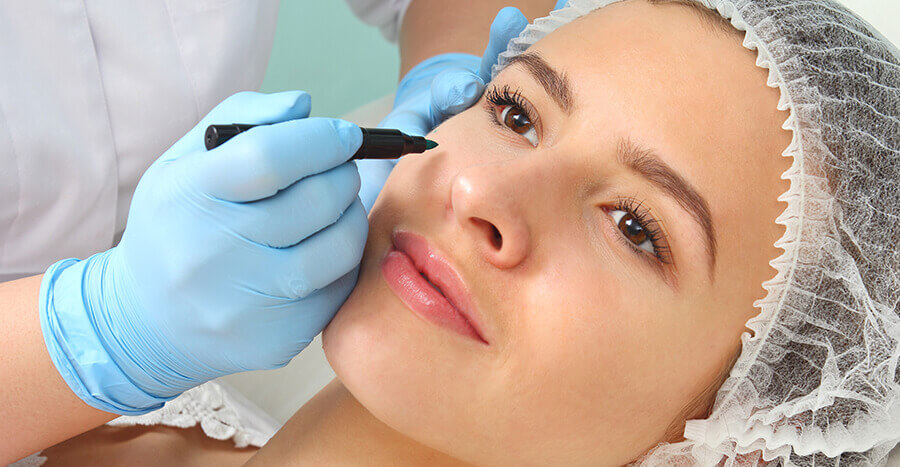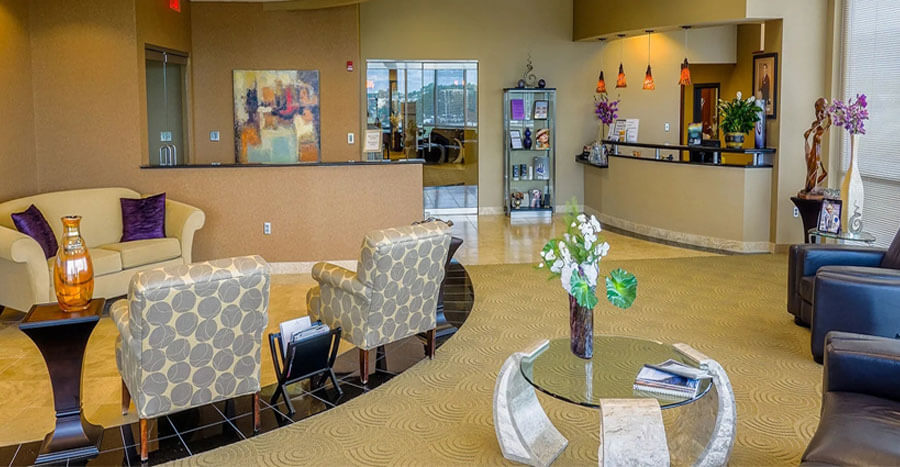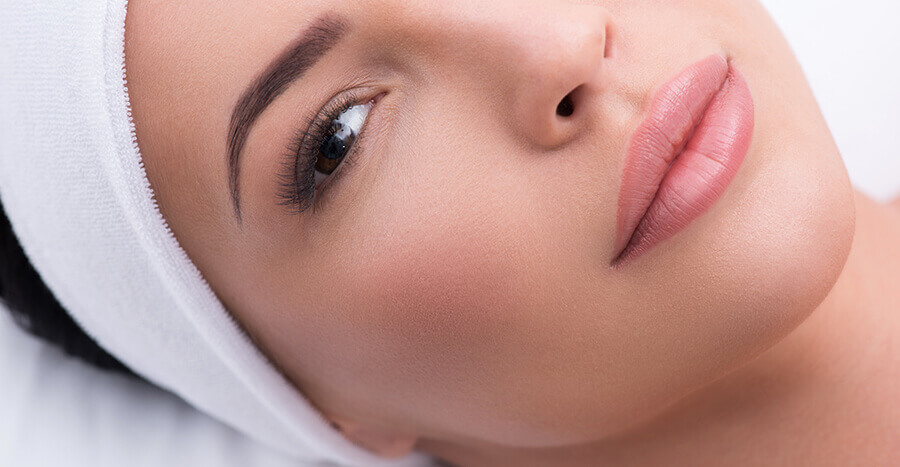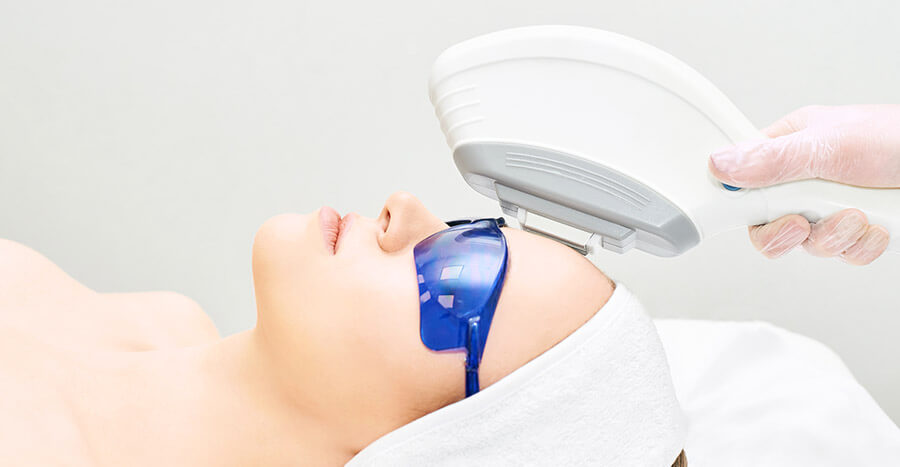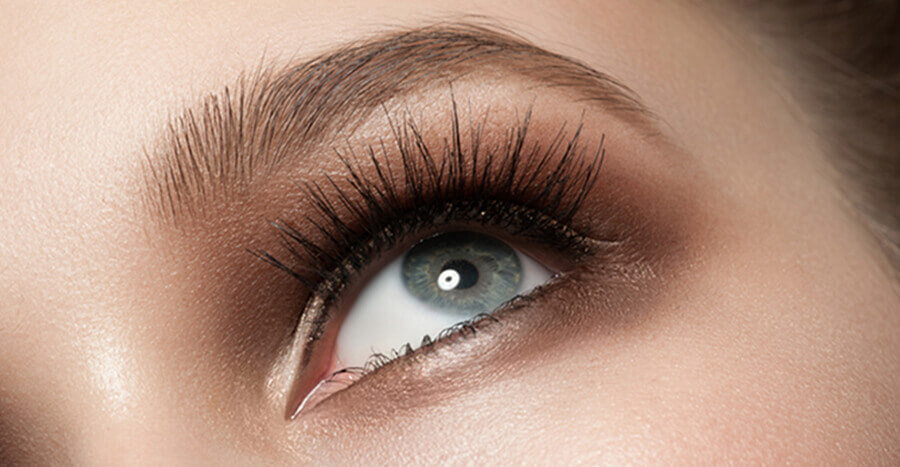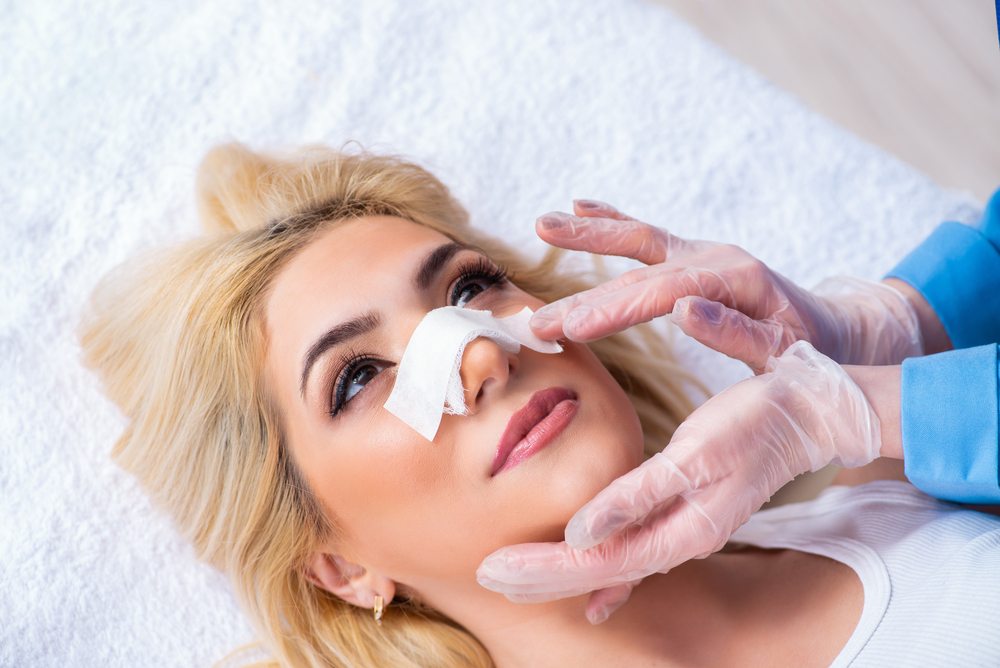Are you considering rhinoplasty to improve the look and function of your nose? Are you wondering how to prepare for your procedure? At Aesthetic Surgical Arts/Mia Bella Donna Medspa, we offer this treatment. We are located in Overland Park in Kansas City and are here to answer any questions you have.
How Should You Prepare for Rhinoplasty?
Rhinoplasty, more commonly known as a “nose job,” is a surgical procedure that reshapes and modifies the structures of the nose to create desired aesthetic features. This procedure can change nose size in relation to the face, alter the angle between the nose and upper lip, remove unbalanced bumps or depressions in the nose, and correct birth defects.
The procedure is often performed through incisions made inside the nose, thus leaving little to no visible scarring. If you’re considering nasal reconstruction surgery, here’s how to prepare for a successful procedure:
1. Research the Best Surgeons and Clinic Facilities in Kansas City
The selection of a highly-trained, qualified, and experienced surgeon is an essential factor in achieving successful outcomes with any surgical procedure. Not only must these surgeons have extensive training and experience in all aspects of facial plastic surgery, but they should also be skilled in the latest techniques and technologies.
Here are five key qualities to look for when researching the best rhinoplasty surgeons in Kansas City:
Experience
A good facial reconstructive surgeon should have a proven track record when it comes to delivering successful results from nasal reconstruction surgeries. Look for a surgeon who has completed many nose job procedures and has consistently achieved excellent results.
Education
The surgeon you choose must have received specialized training from reputable institutions such as medical schools or residency programs. Board certification is another important indicator of educational achievement since certification requires passing rigorous examinations and attending continuing education courses regularly.
Reputation
Ask around to get recommendations from friends or family who may have had nasal reconstructive surgery performed by the same doctor or clinic you are considering. Also, consult with your family doctor to see if they know of any reliable clinics or surgeons that perform nasal reconstruction. You can also read online reviews to learn more about other people’s experiences with the surgeons you’re considering.
Professionalism
A skilled facial reconstructive surgeon should be able to explain the entire procedure clearly and honestly before you make any commitments to proceed with the operation. They should also be able to show before-and-after photos of their past patients so that you can better understand the expected outcome of your procedure.
During your consultation, take note of how professional the clinician is. Do they appear honest, kind, and attentive? Are their answers well-informed? This will help you feel confident that they understand what they’re doing and will deliver good results.
Technology and Equipment
When selecting the best surgeon for any surgical procedure, it’s crucial to consider the state-of-the-art technology and medical equipment they use. This can make the difference between a successful or unsuccessful outcome. For example, many surgeons now utilize ultrasonic piezoelectric technology for precise scalpel work.
This technology vibrates at certain frequencies to accurately trim away excess cartilage, bone, and tissue with minimal trauma. In addition, it helps create precise contour lines that more closely follow the natural curves of the nose. With such advanced tools in their arsenal, you can be sure that your plastic surgeon possesses cutting-edge expertise that is on par with current industry trends.
2. Have Realistic Expectations
One of the main benefits of having realistic expectations is that it helps manage anxiety levels before and after the procedure. When a patient has an understanding of what to expect, they are more likely to be comfortable with all aspects of their care, from pre-operative preparations to post-operative healing.
The knowledge and expertise of your surgeon should also play a crucial role in helping you set realistic expectations prior to undergoing surgery. Ensure that you have discussed your needs in detail with your surgeon so that they can provide you with accurate information on what can be achieved through nasal reconstruction surgery. The surgeon will also inform you of any potential limitations that may affect recovery time or long-term results.
3. Maintain Good Health
The body’s physical condition affects the success of any surgical procedure. Patients who are physically fit will experience fewer complications during surgery and an improved recovery process overall. When the body is healthy, it can heal itself more quickly and effectively, which minimizes the risk of infection or bleeding.
Furthermore, healthy individuals tend to cope better with anesthesia. Here are some health conditions that could disqualify you from being a good candidate for rhinoplasty:
Allergic Rhinitis
Allergic rhinitis is a medical condition that can cause inflammation of the nose and make it difficult to perform the surgery safely or accurately. Allergic rhinitis is caused by exposure to allergens such as pollen, dust mites, mold, pet dander, and other airborne particles.
People with allergic rhinitis may also suffer from chronic sinus infections due to blockage of their nasal passages. It’s important that those suffering from this condition get proper medical attention before undergoing any form of nasal surgery.
Cardiac Disease
Cardiopulmonary diseases such as coronary artery disease, congestive heart failure, and high blood pressure are all taken into consideration when evaluating whether an individual is suitable for undergoing surgery. These medical conditions reduce oxygen delivery throughout the body, thus increasing one’s risk for complications during surgery.
Respiratory Illness
Respiratory illnesses such as asthma and COPD (Chronic Obstructive Pulmonary Disorders) are also taken into account when assessing one’s suitability for nasal reconstruction. These conditions involve inflammation and obstruction within the airways, which could further increase risk levels associated with anesthesia administration.
Bleeding Disorders
People with a bleeding disorder, such as hemophilia, are not good candidates for rhinoplasty. The lack of enough clotting factors in the blood can cause excessive bleeding during and after the procedure, which could lead to further medical complications.
Uncontrolled Diabetes
People with uncontrolled diabetes are not good candidates for this surgery due to the risk of post-operative complications. The high blood sugar level associated with uncontrolled diabetes can impede healing after surgery and increase the risk of infections and slow healing. In addition, diabetes can increase the risk of developing hypertrophic scars, which may be difficult to treat in areas such as the nose.
4. Avoid Certain Medications
You’ll need to avoid several types of medications when preparing for nasal reconstruction surgery. The following three categories of medication are particularly important to be aware of:
Anti-Inflammatory Medications
Ibuprofen or other nonsteroidal anti-inflammatory drugs (NSAIDs) should not be taken before nasal reconstruction surgery. These drugs may thin the blood and increase bleeding during and after the procedure.
Anticoagulant Medications
Anticoagulant medications can also cause excessive bleeding during and after the procedure. Examples include warfarin, apixaban, dabigatran, heparin, rivaroxaban, and edoxaban. Taking these medications after a surgical procedure can increase the length of recovery time. Patients should inform us about any anticoagulant medications they are taking prior to undergoing surgery so that we can take appropriate precautions.
Herbal Supplements
Herbal supplements are often taken as a way to promote health and well-being, but you should avoid their use before surgery. In addition to potentially interacting with anesthesia, some herbal preparations can contain substances that will change the efficiency of blood clotting. For instance, vitamin E supplements can inhibit platelet aggregation, creating unstable conditions that could increase the risk of excessive bleeding or poor wound healing during any surgical procedure.
5. Avoid Smoking
Smoking causes constriction of blood vessels in the nose, thereby restricting proper oxygenation to the area. This means that smoking can impede the healing process, leading to slower recovery times and less-than-optimal results from surgery. Smokers are also more likely to experience postoperative complications such as flap necrosis than those who don’t smoke.
6. Take Off Some Time From Work/School
Taking some time off from work or school prior to the surgery allows the patient to rest and hydrate. This, in turn, leads to faster recovery and fewer complications during the healing process. Most patients are able to return to work or school after one week following surgery.
Full recovery usually takes two weeks. During this time, patients should get plenty of sleep, eat a balanced diet, stay hydrated, and avoid any physical activity that could cause additional strain on the nose. Additionally, regular visits with their doctor during this period are essential for monitoring progress and detecting any potential complications early on so that treatment can be administered promptly if needed.
Nasal Splints
After surgery, a lightweight splint is usually applied to help ensure the new shape of the nose is preserved and protected. These devices serve a crucial role in keeping your nasal bones and tissue in the correct position until they heal fully. The splint will be carefully placed over the bridge and sides of your nose so that it remains secure. Most nasal splints are usually removed after a week following surgery.
7. Prepare Mentally
It’s essential that you emotionally and mentally prepare yourself in order to have a positive experience. This means taking the time to understand why undergoing rhinoplasty is necessary and what the recovery process will involve. You should also take the time to find a surgeon who you know you can trust and ensure that you have adequate family support before undergoing surgery.
Self-care prior to your surgery can also be very helpful in minimizing anxiety and stress levels throughout the process. Exercising regularly and adopting other healthy lifestyle habits can help make all aspects of this process easier for you. With good preparation and care for yourself, not only will you have a better overall experience with your surgical procedure, but it may even lead to faster recovery times.
8. Make Arrangements for Someone To Drive You Home
After surgery, a patient can often feel weak and foggy due to the residual effects of anesthesia. Under these circumstances, it’s impossible for the patient to operate a motor vehicle safely. Having a designated driver ready can make all the difference in making sure you reach your house safely.
Contact a Nasal Reconstruction Surgeon in Kansas City Today!
We strive to give personalized attention to each of our patients. We also ensure that patients understand the entire treatment so that they can make informed decisions. Contact Aesthetic Surgical Arts/Mia Bella Donna Medspa today if you are considering nasal reconstruction surgery. By visiting our offices in Overland Park in Kansas City, you’ll also learn more about our other plastic surgery procedures.







